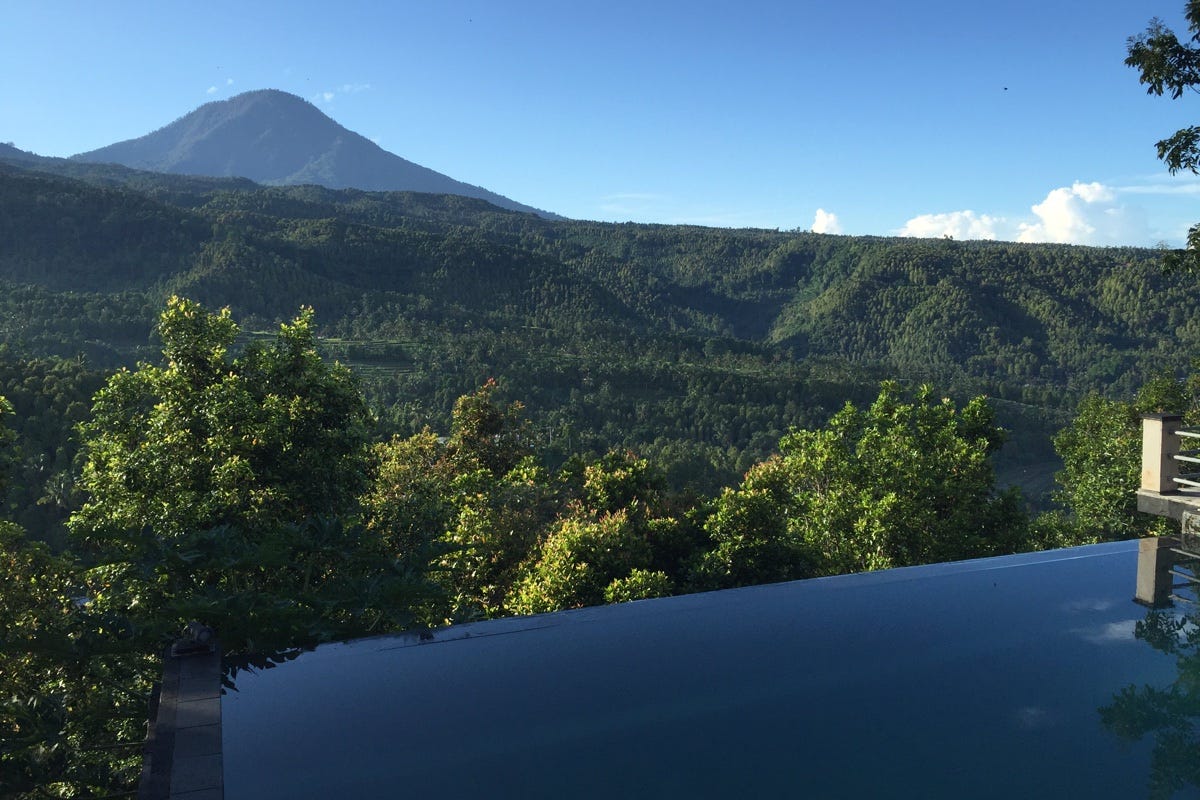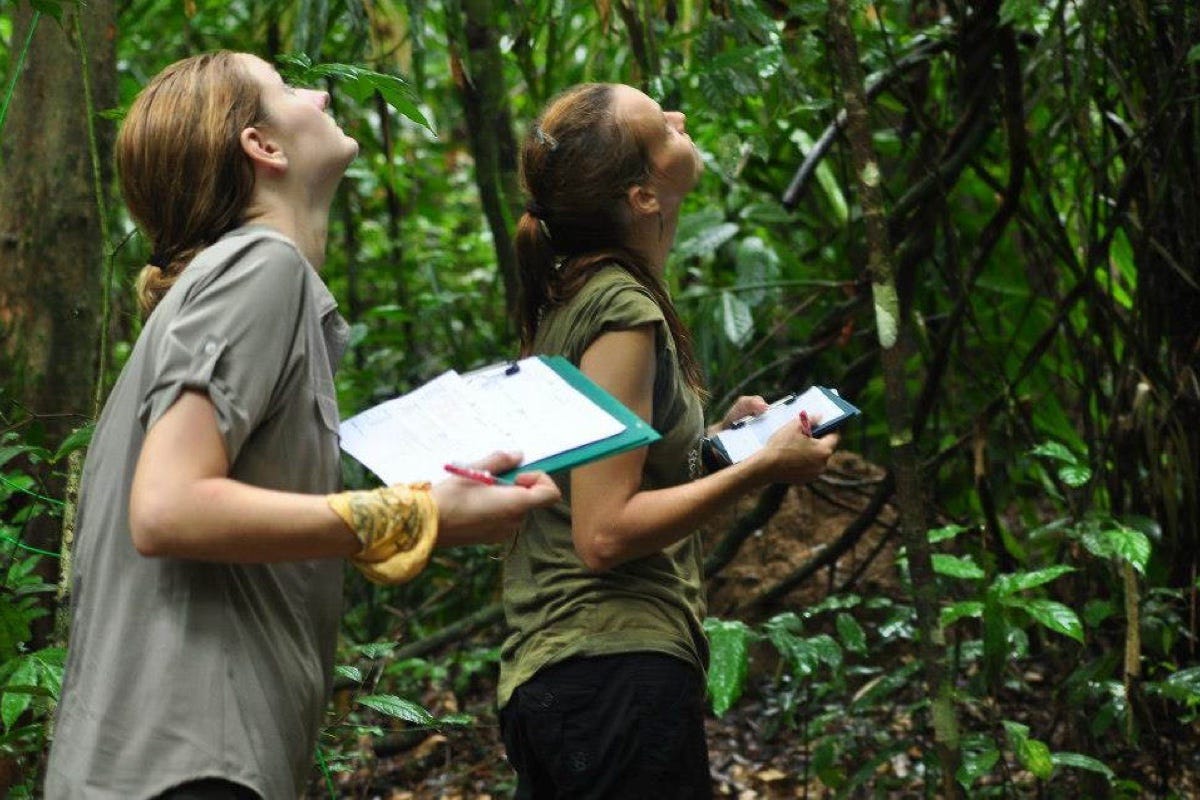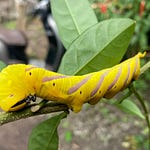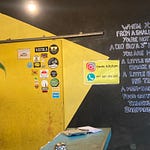One side effect of Covid19 is it has brought out the inner statistician in pundits–a–plenty—yours truly included. This can be a good thing—numbers matter. They can provide often missing context and help educate readers. It helps though, if the numbers are correct.
I first came across fuzzy Covid math early last year. The planet was in the virus’ early throes and stories kept stating 70% or 80% of Bali’s economy was tourism dependent. I know Bali pretty well, and these figures struck me as exaggerated.
Not really feeling the 70–80%. Munduk, Bali. Photo: Stuart McDonald.
Bali is a big place and while the south of the island is heavily touristed, much of the rest is devoid of it. As far as I could see, the 70 or 80% figure came from Wikipedia. Wiki in turn based it on an unsourced figure from a Time story in 2002. Yes, at the time, eighteen years earlier.
I did some digging and found a Bank of Indonesia report from 2017 on the Balinese economy. The report noted accommodation, food and transport contributed about 33% to the economy. Services another 13%. Other reports get the figure up to around 60%, but only by including the banking and telecom sectors.
Sure tourists might use an ATM or buy a sim–card, but it is a stretch to add those into the “tourism reliant” column. To my non–economist gut, somewhere between 30 and 50% felt about right.
This definitely counts. Alila, Candi Dasa, Bali. Photo: Stuart McDonald.
Heading north to Thailand, you’ll likewise see plenty of fuzzy math. In Thailand’s case, the oft quoted “tourism dependent figure” is 20%—it is though, incorrect. The Bank of Thailand, puts the figure at around half that—11%. As with Bali, you can push it to 20% by taking your pick from a glad bag of services and other industries. The more you include though, the ropier the math gets.
My favourite though, as it is in the press non–stop at the moment, is Phuket. Media reports saying 95% of Phuket’s economy was tourism reliant, as with the Bali figure, felt wrong. After some digging I ended up with a not dissimilar figure to Bali—around 45%. As with Bali, you can get this higher by including transport and other services. Are car sales a “tourism related business”? They need to be if you want to reach 95%. What about wholesale retail? The banking system? You need them all in to hit 95%.
All the above is on the supply side—in Phuket’s case though, the TAT is been telling some wonderfully tall tales. In their case, they’re claiming that the average spend of Phuket Sandbox tourists is 40,000 baht per day. This is per person—not per football team.
95% of Phuket’s tourists are not on Sai Kaew Beach. Photo: Lana Willocks.
Now I don’t know about you, but this strikes me as a lot of som tam. So how on earth do they get this number? For starters, it turns out the 40,000 baht includes the cost of the inbound flight to Thailand. In the TAT’s alternate universe, that US$1,000 you spent to fly from Frankfurt to Phuket, is their revenue to count. That seems to me to be well dodgy.
Phuket has its fair share of fancy pants hotels. A quick search on Agoda found me ten nights for two at the Sri Panwa for a mere 106,091 baht. The rate includes free breakfast and free WiFi—I can’t tell you what a relief that was. So lets make the math easy and say 10,000 baht a night for two, that still leaves my friend and I 70,000 baht per day to spend. Som tam here we come.
As I’ve written before, the TAT has among the longest bows in the land. This widely reported figure though is complete garbage. The TAT making stuff up? I know right—I for one am shocked.
“I’d like 8,000 plates please.” Photo: David Luekens.
It has also been reported, that more than half of the Phuket arrivals so far are not “legitimate tourists.” Rather they’re returnees choosing to do quarantine in Phuket rather than Bangkok. Picking an island—even Phuket—over quarantine in Bangkok is totally understandable. Given they’ll be spending quarantine in Phuket (eating loads of som tam), I guess this is a less egregious TAT tale.
So where is the problem? To my mind there are two.
First, overstating the tourism reliance of any destination does nobody any favours. I’m not denying the severe situation those in the tourism industry are facing. Particularly in countries where financial support is minimal, the situation is brutal. Overstating the scale of the problem though, plays into governmental spin. The spin being, despite Thailand being largely unvaccinated, they had little choice but to embark on risky projects like the Sandbox.
Searching for the right numbers need not be as hard as finding a released gibbon. Photo: Lana Willocks.
Of course they had other choices—they had quite a few actually. Not mismanaging vaccine supply to a head–desking degree would have been a good start. That milk is spilt though. Financial support until nationwide vaccinations reach a viable level, is an obvious alternative. Governments deserve flogging on this—it isn’t as if the budget isn’t there—especially in Thailand’s case. Hell, even Cambodia managed it.
Secondly, if you’re a tourism business owner, you can’t be faulted for thinking now is the time to reopen. The truth though, is that tourism spending is, in all likelihood, a fraction of what the TAT is claiming. Other media reports have suggested the average spend is just 5,500 baht per day—a little over a tenth of what the TAT is saying. This strikes me as far more reasonable, and I can see how you could manage it—just stay at Sri Panwa! (Note in the podcast I mistakingly said 9,500 baht—sorry!)
No need to make stuff up—Phuket can sell itself naturally. Photo: Stuart McDonald.
Numbers matter. Much has been written about concerns around official data for Covid caseloads. Regurgitating iffy numbers on the scale of the problem and the revenue from risky re–openings, are no more helpful. In a worse case scenario, these iffy numbers could could be just as dangerous as the dodgy Covid ones. To tourists and locals alike.
Couchfish is 100 percent independent and reader–supported. If you’d like to show your support, become a paying subscriber today for just US$7 per month, or share this story with a friend. Thank you!
















